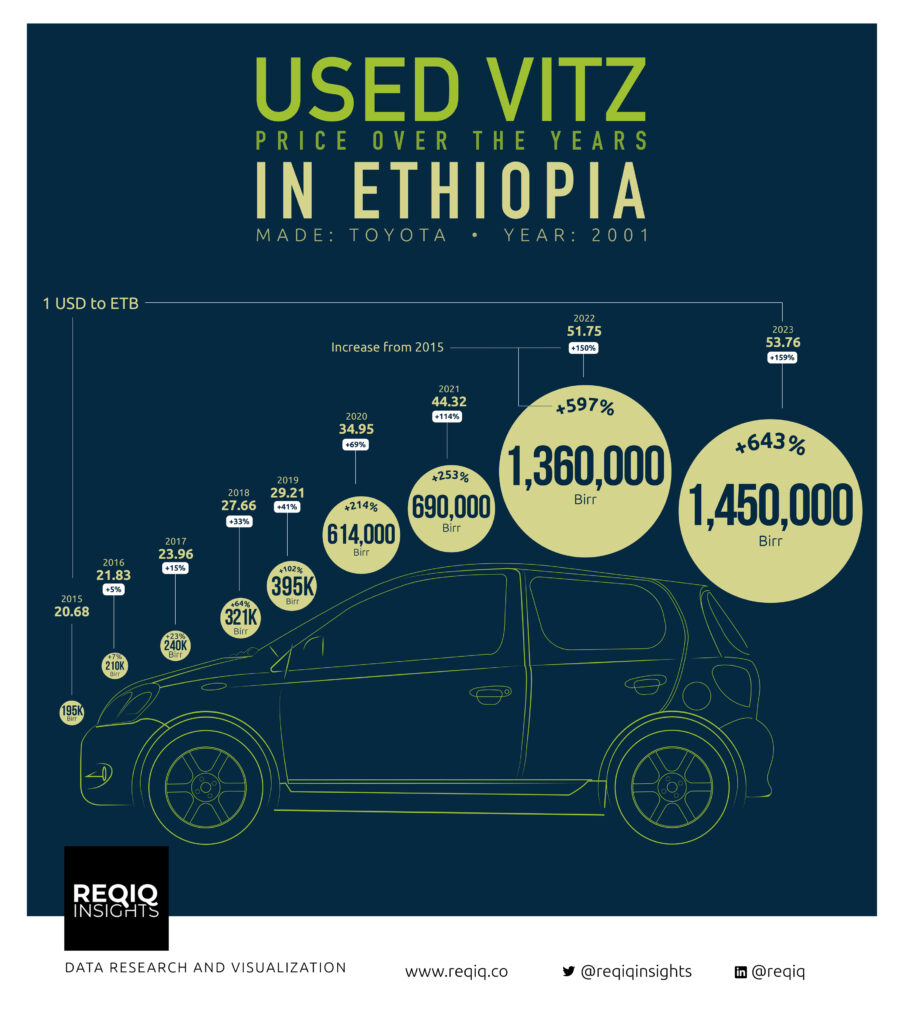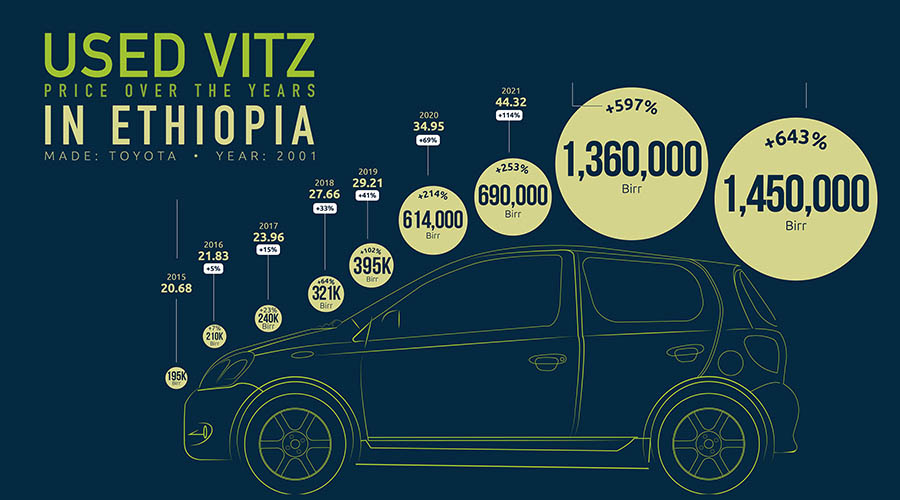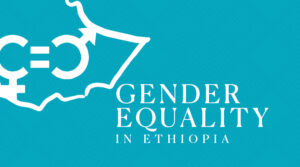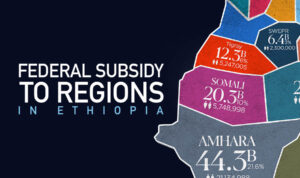Bole’s Bajaj, the mule of the city, or whatever name you’ve heard— it feels like the closely-packed Vitz has been part of Addis’ facade since time immemorial. But if you’ve been living under a rock, we will do a quick introduction. Toyota Vitz, also known as Toyota “Yaris” and Toyota “Echo” in the export market, is a subcompact hatchback launched by Japan’s top-class automaker Toyota Motors in 1999. And in the same year, the Toyota Vitz won the Car of the Year award in Japan.

Since joining the Ethiopian automotive market in 2015, Vitz has experienced unparalleled growth in popularity. Due to its outstanding fuel efficiency, affordable price, and dependability, the Vitz has quickly become the choice vehicle for the Addis Ababa’n traffic. Though one would expect the high demand for Vitz would somewhat stabilize its price, the reality could not be further from this, with used Toyota Vitz prices growing from ETB 195,000 to ETB 1.5 million in under a decade, on average doubling its price each year.
There are many theories as to why car prices have risen globally, and, granted, the factors are many. With factors like inflation, fluctuating financial markets, supply chain issues, and the drop in available microchips, the price of cars has risen to all-time highs over the past few years. These factors, when combined, cause a shortage in the production of new cars, which in turn causes a rise in the prices of all available cars, whether used or new. However, economists predict that this price increase is only temporary and that prices will start to fall later this year.
What piques one’s interest, and is noteworthy, is that the global price of Vitz has been steadily declining in recent years. Then why are we still witnessing a price hike in the local market? One reason could be the forex market and the exchange rate of the local currency, the Birr. Inflation is a factor that significantly affects exchange rates. This sounds like complicated finance talk, but here’s the quick breakdown: while a very low rate of inflation does not guarantee a country will have a favorable exchange rate, a very high rate of inflation is almost certain to have a detrimental impact on the country’s exchange rates with other nations. This is because a high inflation rate leads to higher prices for goods. High prices of goods then make manufacturers less competitive in the export market. If there is less demand for a country’s export goods, the demand for its currency will also decrease. Then, we say the currency in question has lost value or depreciated. When this occurs, the rate of imports rises, which causes a general increase in commodity prices. We also notice this price hike in goods that are not imported; this is because the overall value of money decreases in a state of inflation, causing the cost of living to rise exponentially.
This is precisely why the price of other essentials has also generally doubled and, in some cases, more than tripled in recent years, particularly since the pandemic. A good example of a price hike in home-grown goods is the price of whole chicken. It is shocking, to say the least, that the price of live chicken has increased so dramatically in the last five years, from just under ETB 200 birr to more than ETB 700.
Short and insignificant bouts of inflation are essential to the health of an economy. However, sustained inflation, since the typical household’s income cannot keep up with the increase in living expenses, calls for action to prevent necessities from turning into luxuries.











One Response
This is an awesome work. Hope to see more coming.